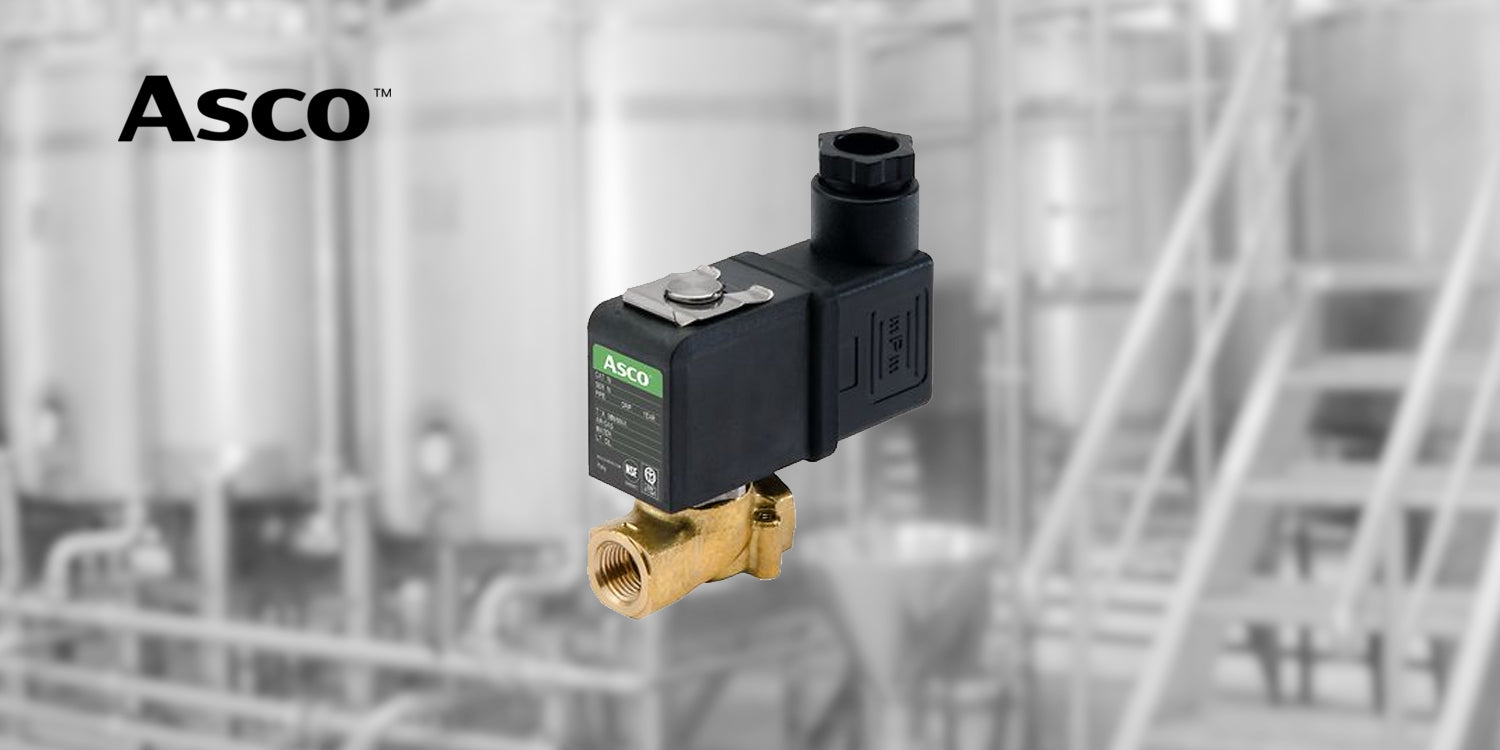At HMFT, we understand that dairy processing demands uncompromising hygiene and precision. Every drop of milk, yogurt, or cheese must meet stringent safety standards, and that’s where ASCO solenoid valves shine. Let’s explore how these valves are revolutionizing dairy operations across Canada, from CIP systems to pasteurization.
The Hygiene Imperative in Dairy Processing
Dairy facilities face unique challenges: viscous fluids, aggressive cleaning cycles, and zero tolerance for contamination. A single valve failure can lead to costly recalls or downtime. Traditional valves often struggle with:
- Corrosion from acidic cleaning agents
- Bacterial buildup in hard-to-clean crevices
- Leaks compromising product integrity
ASCO’s sanitary solenoid valves solve these problems while exceeding FDA and NSF standards. Here’s how.
ASCO’s Dairy-Optimized Valve Solutions
1. NSF-Certified Designs for Peace of Mind
ASCO’s Series 8256/8356 valves carry NSF 61/372 certifications, ensuring lead-free materials safe for direct product contact. Their 316L stainless steel bodies resist corrosion from CIP chemicals like caustic soda and nitric acid—common culprits in valve degradation.
2. FasN™ Connections: Maintenance Made Simple
Ever struggled with disassembling valves for cleaning? ASCO’s patented FasN™ union system (featured in the 8212 Series) allows tool-free disconnection in seconds. One dairy client reduced valve service time by 40% after switching to this system.
3. EHEDG-Approved Hygienic Design
ASCO’s angled seat valves eliminate dead zones where bacteria could thrive. The electro-polished surfaces (Ra ≤ 0.8 μm) prevent residue adhesion, crucial for meeting Canadian Food Inspection Agency (CFIA) standards.
Key Applications in Dairy Processing
| Process | ASCO Valve Series | Benefit |
|---|---|---|
| Milk Pasteurization | 8290 Series | Withstands 150°C steam for sterilization |
| CIP Chemical Dosing | 8212 Series | FasN™ connections enable quick line swaps |
| Yogurt Culture Transfer | 8356 Series | 316L SS prevents probiotic contamination |
Future-Proofing with Smart Valve Technology
ASCO’s IoT-enabled valves now offer real-time monitoring through HMFT’s integration services. One Alberta milk plant uses embedded sensors to:
- Predict seal wear 3 weeks in advance
- Automate cleaning cycle adjustments
- Generate CFIA-compliant audit trails
Why Canadian Dairies Choose ASCO Through HMFT
As Canada’s trusted ASCO distributor, HMFT provides:
- Local inventory of NSF-certified valves
- Customized elastomer kits for -40°C operations
- On-site training for valve maintenance teams
Conclusion
In dairy processing, every valve is a guardian of quality. ASCO’s hygienic solenoid valves combine regulatory compliance with rugged reliability—exactly what Canadian dairy producers need to compete globally. At HMFT, we’re committed to helping you implement these solutions seamlessly.
Ready to eliminate valve-related contamination risks? Contact our ASCO specialists today for a free dairy process audit.
FAQ Section
Q: How do ASCO valves prevent biofilm formation?
A: Their ultra-smooth surfaces (Ra ≤ 0.8μm) and lack of dead zones leave nowhere for bacteria to hide, meeting CFIA’s biofilm prevention guidelines.
Q: Can ASCO valves handle high-fat dairy products?
A: Absolutely. The 356 Series’ full-bore design handles creams and cheese slurries up to 8,000 cP viscosity without clogging.
Q: Are these valves compatible with automated CIP systems?
A: Yes! ASCO’s NAMUR-mounted valves integrate with PLCs for fully automated cleaning cycles compliant with CFIA’s Appendix G.

